How Long Can Products Be Stored in the Fridge
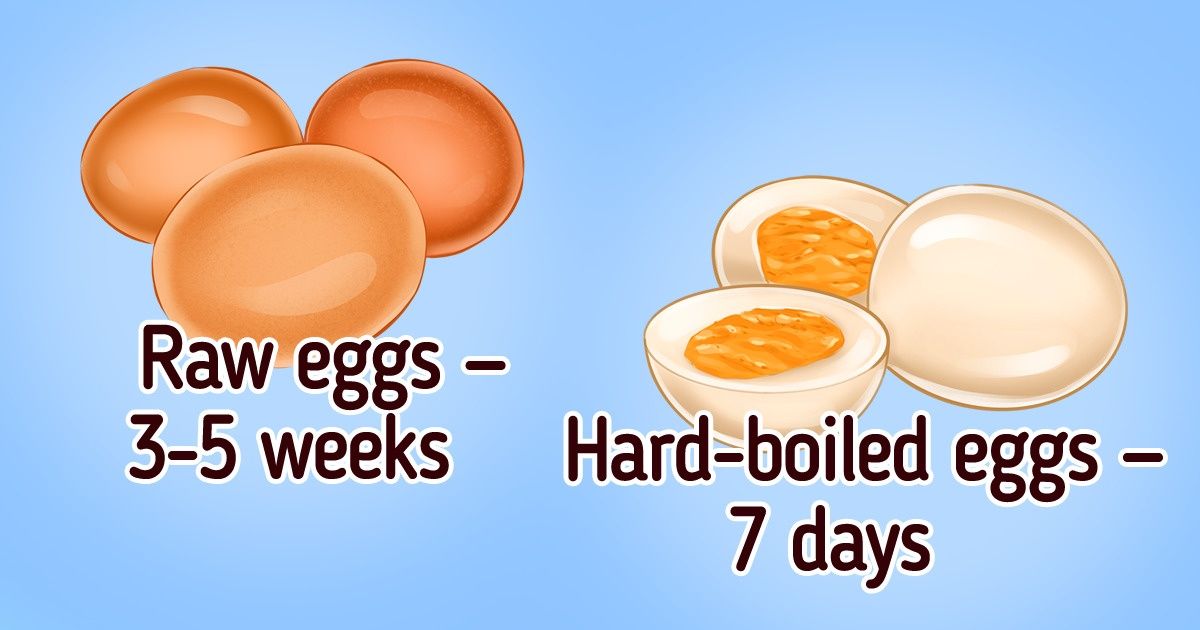
We all want to consume fresh, tasty products but not all of us think about the correct times and conditions for storing them.
5-Minute Crafts prepared this article for you so that you can be aware of how long products can be stored on the shelves of your fridge without harming your health.
Meat products
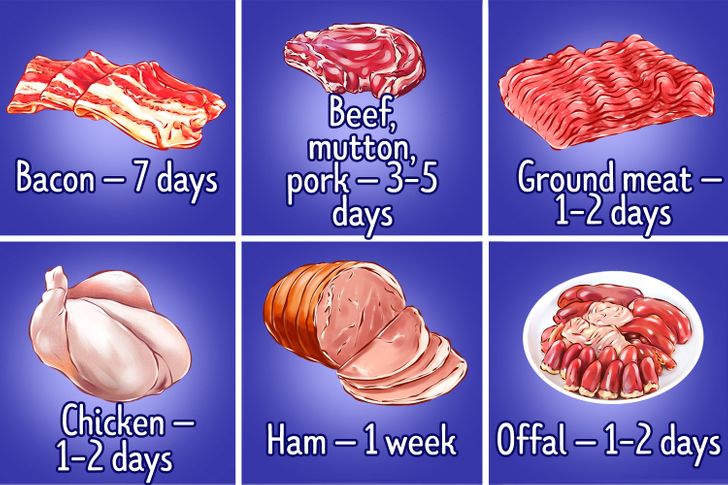
When buying fresh meat or seafood, it’s better to follow this rule: buy the amount that you’ll consume within a couple of days. If you are going to store food for a longer time, it’s better to give preference to frozen products.
- Bacon — 7 days
- Raw beef, lamb, or pork — 3–5 days
- Ground meat — 1–2 days
- Raw chicken — 1–2 days
- Ham — 1 week
- Raw offal (kidneys, liver, hearts) — 1–2 days
- Raw sausage — 1–2 days
- Boiled sausage — 7 days
Fruits and berries
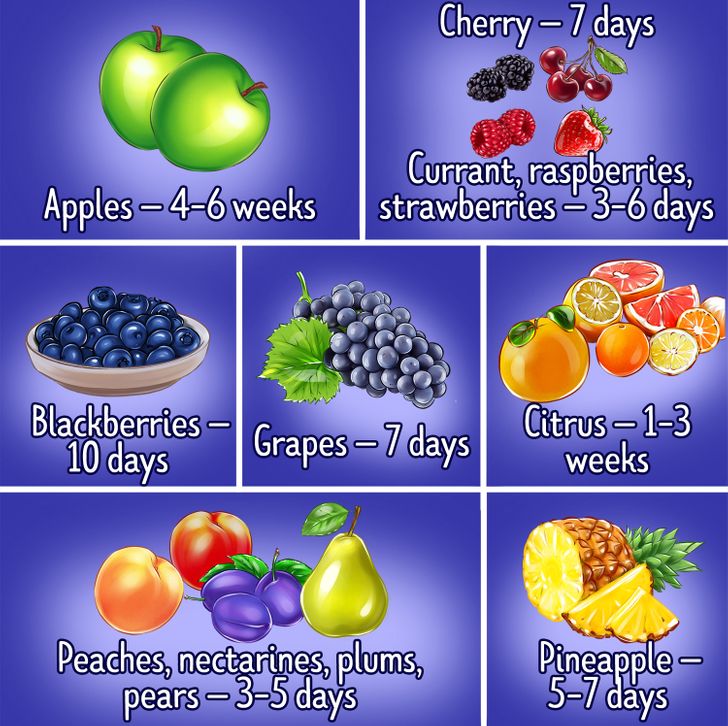
It’s better to place some fruits and berries in the fridge right away, while apples and pears can be stored at room temperature at first. Transfer them to the refrigerator when they are as ripe as possible.
- Apples — 4–6 weeks
- Blackberries — 10 days
- Cherry — 7 days
- Currant, raspberries, strawberries — 3–6 days
- Citrus — 1–3 weeks
- Grapes — 7 days
- Peaches, nectarines, plums, pears — 3–5 days
- Pineapple — 5–7 days
Vegetables, greenery, and mushrooms
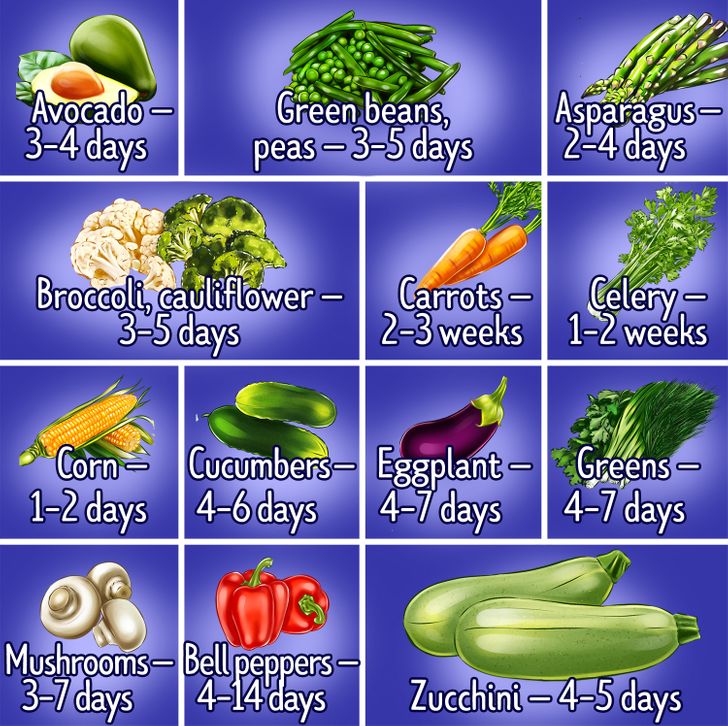
Before putting vegetables in the fridge, make sure they are not spoiled: sort out the mushrooms and greenery and inspect the zucchini and peppers to make sure they are free of rotten spots.
- Green beans, peas — 3–5 days
- Avocado — 3–4 days
- Asparagus — 2–4 days
- Broccoli, cauliflower — 3–5 days
- Carrots — 2–3 weeks
- Celery — 1–2 weeks
- Corn — 1–2 days
- Cucumbers — 4–6 days
- Eggplant — 4–7 days
- Greens — 4–7 days
- Mushrooms — 3–7 days
- Bell peppers — 4–14 days
- Zucchini — 4–5 days
Dairy products
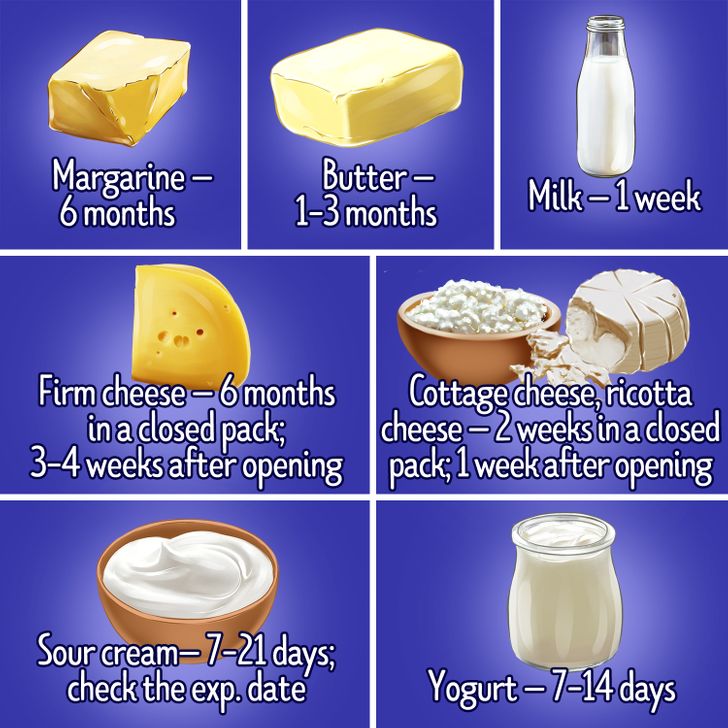
- Margarine — 6 months
- Butter — 1–3 months
- Milk — 1 week
- Firm cheese — 6 months in a closed pack; 3-4 weeks after opening
- Cottage cheese, ricotta cheese — 2 weeks in a closed pack; 1 week after opening
- Sour cream — 7–21 days; check the exp. date
- Yogurt — 7–14 days
- Buttermilk — 1–2 weeks
- Whipped cream in a spray can — 3–4 weeks
Eggs
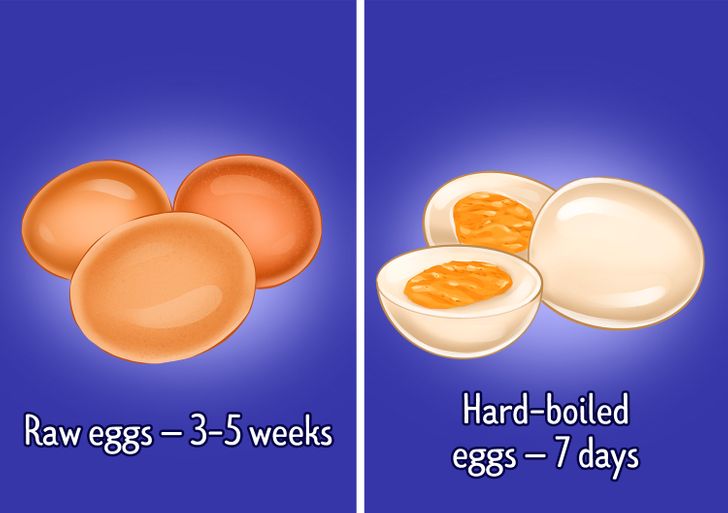
- Raw eggs in the shell — 3–5 weeks
- Hard-boiled eggs — 7 days
- Raw eggs without the shell — 2–4 days
Seafood
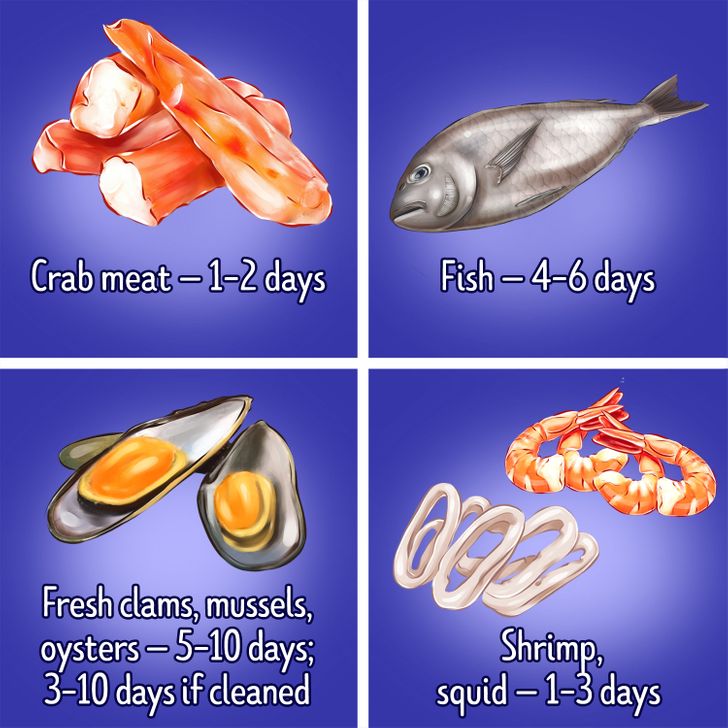
Sauces and pickles
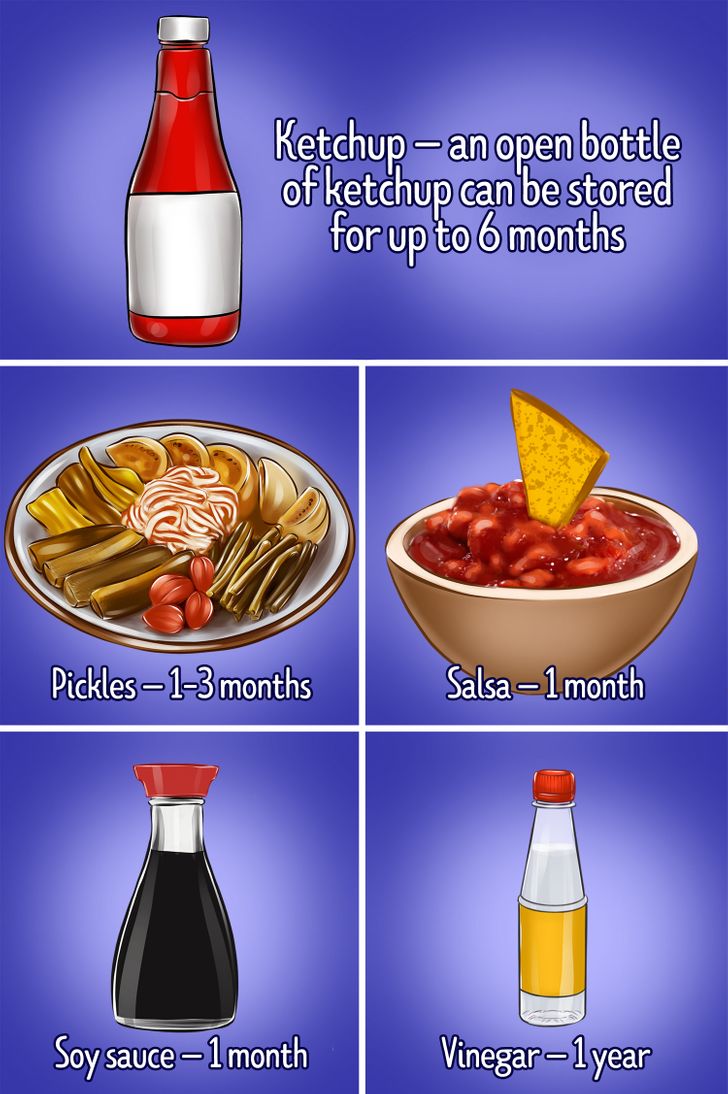
Everything has an expiration date and sauces, pickles, and olives are no exception. That’s why it’s better to not store open bottles of ketchup on the door of your fridge for years.
- Mayonnaise — 2 months
- Olives — 2 weeks
- Pickles — 1–3 months
- Salsa — 1 months
- Soy sauce — 1 month
- Vinegar — 1 year
- Ketchup — an open bottle of ketchup can be stored for up to 6 months
Beverages
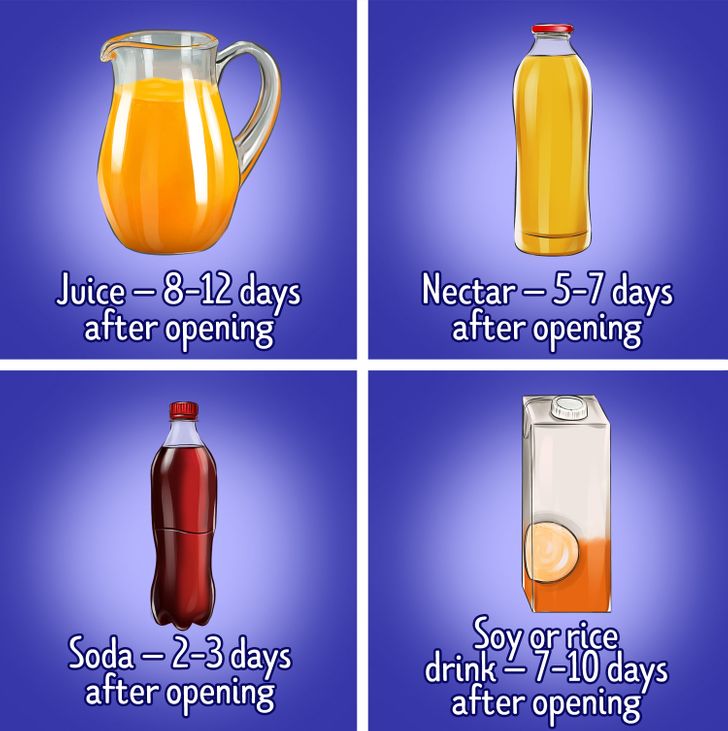
- Soda — 2-3 days after opening
- Soy or rice drink — 7-10 days after opening
- Nectar — 5-7 days after opening
- Juice — 8-12 days after opening
Ready-made meals
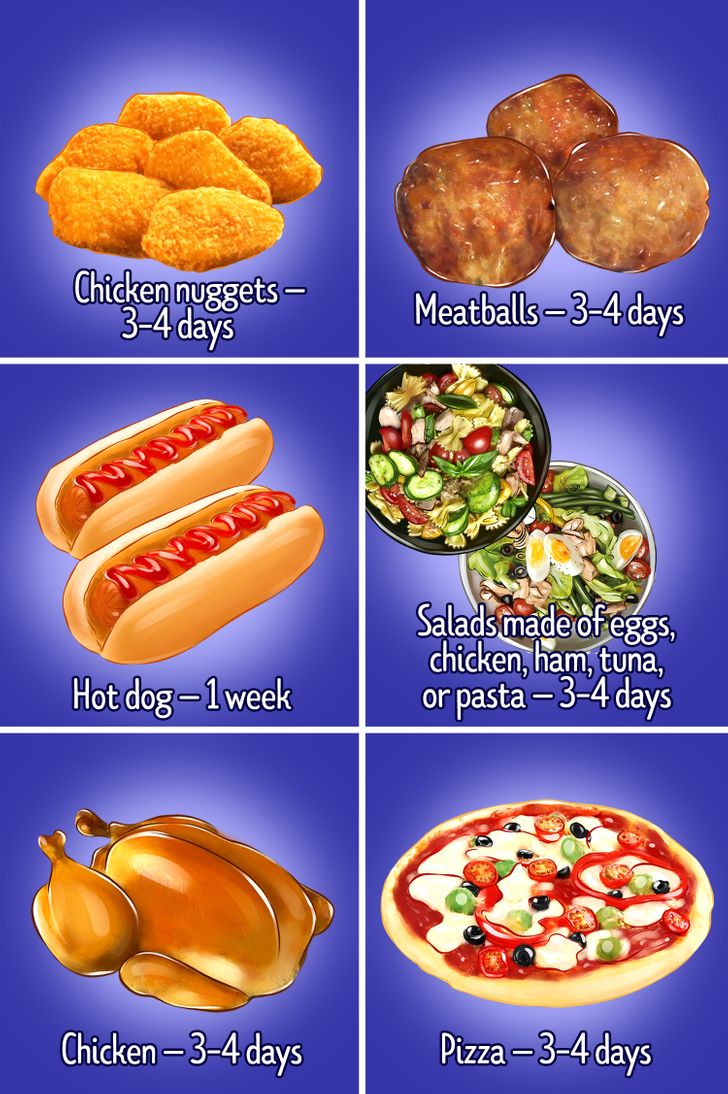
Thoroughly pack unfinished dishes and store them separately from raw meat and seafood.
- Salads made of eggs, chicken, ham, tuna, or pasta — 3-4 days
- Hot dog — 1 week
- Pizza — 3–4 days
- Meatballs — 3–4 days
- Chicken nuggets — 3–4 days
- Chicken — 3–4 days
- Do not store opened cans in the fridge, because the food may start to taste like metal.
- Place food in special containers with a label indicating the date of purchase or the date the package was opened.
- Keep the refrigerator at about 40°F.
- Regularly wash the fridge from the inside, get rid of spoiled products and products whose expiration date has passed.